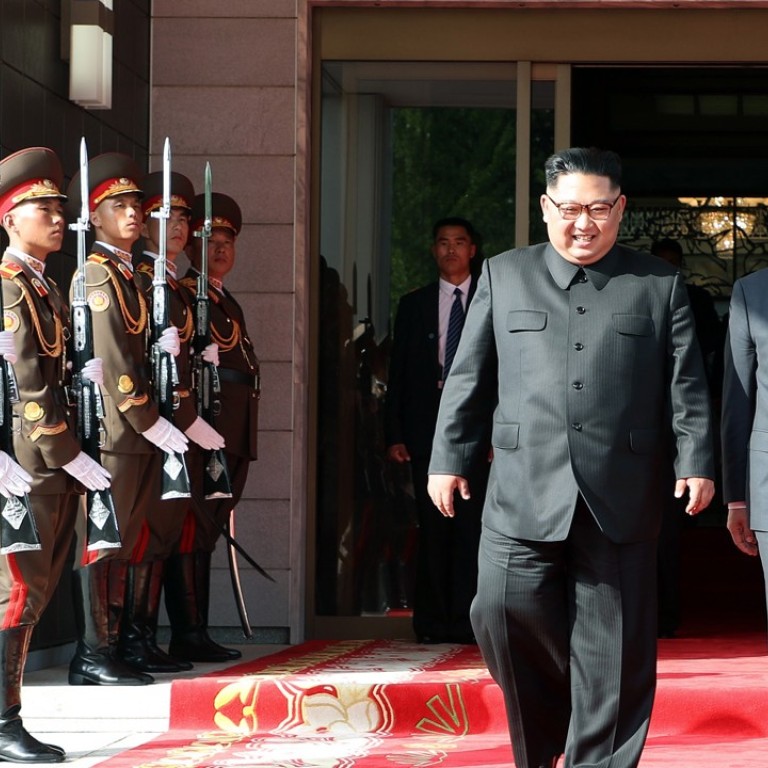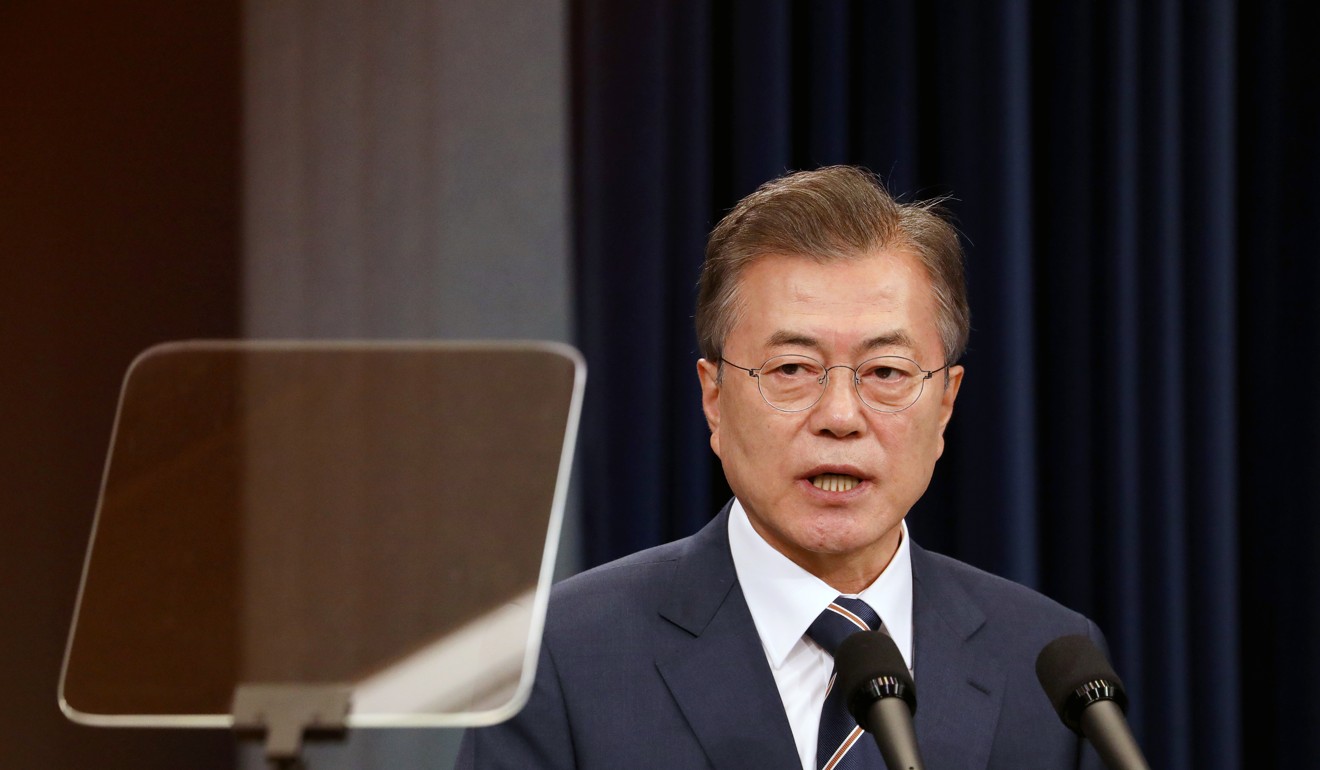
While the world breathes easier with the Trump-Kim detente, South Korea’s economy suffers
South Korean President Moon Jae-in took office in May 2017, but shortly thereafter pivoted from a focus on the economy to North Korean peace. The problem is Moon’s Pyongyang detente has eclipsed all else
Whatever happens in Singapore on June 12, the planned Donald Trump-Kim Jong-un summit has already produced one casualty: South Korea’s economy.
In May 2017, Moon Jae-in took office with a strong mandate to raise South Korea’s game. At the time, predecessor Park Geun-hye was in a prison cell and Samsung, South Korea’s biggest and most cherished company, was embroiled in scandal. Voters turned to Moon to rein in the family-owned conglomerates towering over Asia’s fourth-biggest economy, one with growth of just 1 per cent.
Instead, Moon pivoted to North Korean peace. A worthy aspiration, of course, but one best handled on a separate track from Moon’s structural reform mandate. Moon’s Pyongyang detente has eclipsed all else. His government has yet to address a 10 per cent youth unemployment rate, tackle record household debt or rebalance growth engines away from a small handful of giants in favour of start-ups.
Moon punted on efforts to increase productivity and innovation, tighten corporate governance and narrow the gender pay gap. South Korea ranks behind Tunisia and Ethiopia in the World Economic Forum’s annual gender empowerment index. Nor has Moon safeguarded an export industry acutely vulnerable to US President Trump’s assault on global trade flows.
Clearly, peace is a vital and worthy goal. But the odds of Kim denuclearising according to Washington’s definition is basically zero.
So, if Kim and Trump do meet on Tuesday, it will be 90 per cent photo op, 10 per cent substance – and that’s being kind. Trump will surely spin this as a historic milestone. But we are years away from knowing if Singapore changes anything.
What is certain is that Moon’s legacy as an economic change agent is looking rather flimsy. An argument can be made, that with an approval rating in the mid-70s, Moon could pivot back to generating “trickle-up growth”. That means supporting job creation among small-to-medium-size enterprises. More likely, though, Moon will double-down on Kim outreach.

Local media is already obsessing over how a unified Korea might look. It’s a wildly premature thought experiment. Sure, there might be a move to reopen the Kaesong industrial park just north of the demilitarised zone. Recently, Financial Services Commission Chairman Choi Jong-ku offered a US$55 billion guesstimate for economic gains from greater cooperation.
But, says Scott Seaman of Eurasia Group, “South Korean firms are already often buffeted by unpredictable swings in relations with the North, and making investments and otherwise doing business there would expose them even more to the vagaries of efforts to keep engagement on track”.
Moon would be wise to multitask a bit to remake Korea Inc. In her four years in office before being impeached on bribery charges, Park neglected her pledge to “democratise” growth sources and income distribution. She slow-walked efforts to increase corporate accountability and end the “Korea discount” that lowers stock valuations.
Before Park, President Lee Myung-bak failed to implement his “747” vision of 7 per cent average growth, raising per capita income to US$40,000 and morphing South Korea into a top-seven economy. So, including Moon’s first year in office, that means Seoul squandered eight years it can’t get back punting on moves to raise global competitiveness.
In the age of China, South Korea’s high labour costs and living standards make it an expensive property in a cheap economic neighbourhood. The only way to preserve those gains is to accelerate the move upmarket. Sadly, Moon’s team is too preoccupied looking up North to fix the domestic headwinds holding back its economic future. Whether Trump and Moon succeed in curbing Kim’s provocations, South Korea’s economy is likely to pay a price.
William Pesek is a Tokyo-based journalist and author. He has written for Bloomberg and Barron’s

